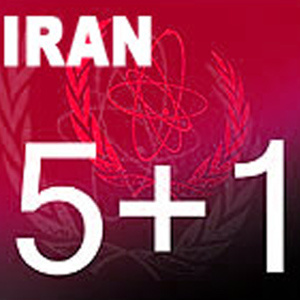Another Equivocal IAEA report on Iran
IAEA report serves to escalate tensions rather than reducing it

Last Monday, the Director General of the International Atomic Energy Agency issued another report on Iran’s nuclear activities and submitted it to the Board of Governors of the IAEA and the U.N. Security Council. The nine-page document contains both positive and negative elements on Iran’s cooperation with the Agency.
The Director General explicitly states that the inspectors have not found any evidence that Iran is attempting to divert its peaceful nuclear program to military uses. At the same time, he emphasized that Iran continued to thwart efforts to obtain information about certain alleged Iranian activities that could shed lights on the nature of the program. However, he emphasized that the agency has not detected the actual use of nuclear material in connection with alleged studies.
The report contains equivocal assessment of Iran’s peaceful nuclear program. Interestingly enough, most Western media have capitalized on the negative aspects of the report particularly with regard to Iran’s so-called lack of cooperation on the alleged studies which the Director General considered a matter of serious concern.
But the most important negative point in the report refers to the need for Iran to clarify the alleged studies which according to Mr. El-Baradei will be critical to determine the nature of Iran’s past and present nuclear program. While the report of the U.S. intelligence agencies (NIE) vindicates Iran of any wrongdoing with regard to its present program and the Director General himself, on numerous occasions including in the recent report, has emphatically declared that the IAEA inspectors have found no evidence of diversion, he has stated that the peaceful nature of the present Iranian program will be determined after clarification of the alleged studies.
It should be noted, however, that based on the agreement between Iran and the Agency dated 27 August 2007, alleged studies were not considered among the outstanding issues. The text of the said agreement stipulates that as a sign of good will and cooperation with the Agency, upon receiving all related documents, Iran will review and inform the Agency of its assessment. Iranian officials have stated that they have implemented this provision and have given the IAEA officials their detailed assessment of the alleged studies.
Another troubling development in the past few days was the statement of Olli Heinonen, the Agency’s Deputy Director General, who in a briefing for the IAEA Board members said that Iran’s possession of nuclear warhead diagrams was alarming. It is reported that he also said that much of the intelligence the Agency had from the U.S. and others tended to increase concerns.
Under these circumstances, what is the Agency’s motivation for heating up the situation? Why all of a sudden the tone of the IAEA report and its officials has changed while Iran has continuously cooperated with the inspectors in performing their duties and they have not found any unlawful activity in Iran? Does it have anything to do with the external pressures being exerted on the Agency?
As expected, the U.S. officials have used the opportunity to highlight the negative aspects of the report claiming that Iran was working covertly on a weapon program. Iran, on the other hand, has rejected allegations of an undeclared nuclear program as baseless and totally false. Iran has also said that it has given 200 pages of explanations regarding the so-called weaponization program.
While the U.S. has sharpened its rhetoric against Iran and has been seeking the support of other countries for adoption of another sanction resolution at the Security Council, some Iranian officials have criticized the recent IAEA positions and warned that Iran might review its relations with the Agency.
At this critical juncture, the IAEA should realize that it can be an instrument for peace or a vehicle for escalating tension. Therefore, the Agency is expected to act wisely in order not to lose its credibility. In the meantime, Iran and 5+1 countries should seize the opportunity and start negotiations without any pre-condition.

